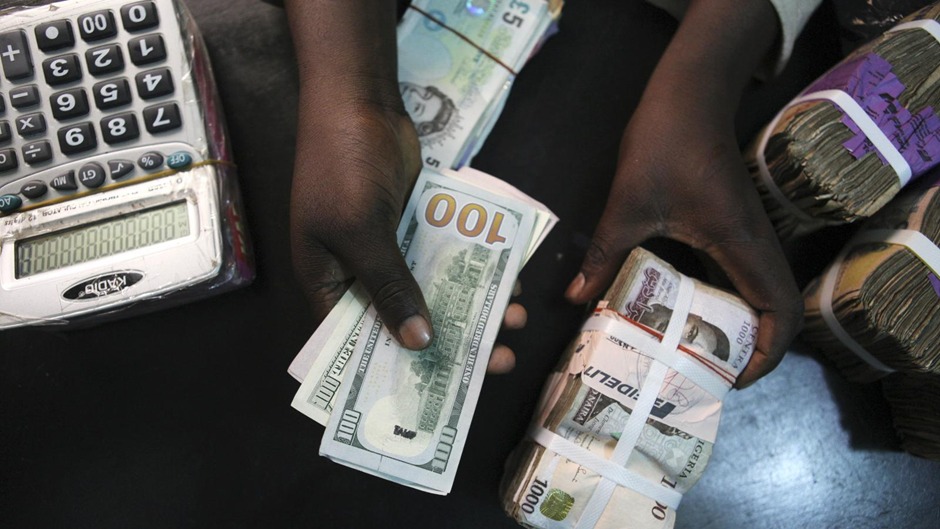Nigeria’s aggressive foreign currency reforms under President Bola Tinubu have failed to produce the outcomes many predicted, with detractors blaming implementation.
In the first year of Tinubu’s government, the naira lost 65 percent of its value versus the US dollar on the official market due to two devaluations that the Central Bank carried out inadvertently in an effort to move toward a rate set by the market.
The value of the naira decreased from N463 quoted in May 2023 to N1,339 per dollar as of May 27, 2024, according to data obtained from the FMDQ Securities Exchange Limited.
The abolition of the gasoline subsidy and the unification of FX windows, two of President Tinubu’s initiatives, were criticized by Olusegun Obasanjo, the former president of Nigeria, as being improperly carried out.
“Today, the government has made three decisions, two of which are necessary but were improperly carried out, impoverishing the Nigerian people and the economy,” stated Obasanjo.
In a statement released on Sunday, Obasanjo stated, “These are the removal of subsidies, closing the gap between the black market and official rates of exchange, and the third is dealing with a military coup in the Niger Republic.”
The naira has lost 49.47 percent of its value in the last year in the parallel market, sometimes known as the “black market,” where the dollar is currently trading at N1,500 against N758/$1 in April 2023.
The CBN’s settlement of foreign exchange commitments due to manufacturers and local banks, along with the introduction of more transparent naira pricing, originally caused the naira to appreciate.
Although the CBN’s aggressive approach to interest rate policy, which has resulted in a total increase of 750 basis points this year alone, has helped attract foreign investment and reduce the negative real return on naira investments, it hasn’t been able to control inflation, which is at a 28-year high.
Nigeria’s foreign reserves decreased over the same period, falling 7.21% to $32.763 billion on May 22, 2024.
A number of issues, including the high need for foreign exchange to cover the costs of goods imports and services, low trust, limited investment inflows, and low sales of crude oil due to oil theft, all contribute to the pressure on external reserves.
“For an extended period, the currency exchange was prohibited from altering to mirror the variations in the rates of inflation in the United States and Nigeria,” Charlie Robertson, Head of Macro Strategy at FIM Partners UK Limited stated.
He claimed that as economic realities set in, Nigeria saw a severe currency shift.
“This has been difficult for Nigeria because, in contrast to Egypt and perhaps Ethiopia in the near future, Nigeria lacked the safety net of an IMF program, which could have lessened the blow,” Robertson stated.
“The road is harder because Nigeria is determined to act alone, but the appropriate measures have been passed to improve the situation. The naira’s recovery will be aided by the low, competitive currency, which will also enhance the current account and foreign exchange liquidity. As a result, external reserves should increase,” Robertson concluded.
The CBN has instituted various foreign exchange reforms, such as unifying the exchange rates window, liberalizing the foreign exchange market, clearing bank and airline FX backlog obligations, introducing the Price Verification System (PVS), limiting banks’ net open position, lifting the daily cap of N2 billion on remunerable Standing Deposit Facility (SDF), and restructuring the BDC segment.
Other actions taken to restore stability, improve transparency, increase supply, and encourage price discovery in the Nigeria Autonomous Foreign Exchange Market include eliminating all margin caps for International Money Transfer Operator (IMTO) remittances; implementing a two-way quote system; and implementing extensive reforms in the Bureau De Change (BDC) sector of the market.
After taking office on May 29, 2023, President Bola Tinubu did not waste any time in declaring that there could be a comprehensive cleaning of the financial system.
A few days later, he suspended Godwin Emefiele, the Central Bank’s former governor, whose unconventional monetary policy had drawn much criticism. Emefiele’s suspension resulted from an investigation into his office and allegations of money laundering.
Folashodun Shonubi, who had served as the CBN governor since Emefiele’s suspension, resigned, and all of the deputy governors of the CBN under the former governor also tendered their resignations.
To alleviate the pressure on FX demand, boost the supply of dollars, and stabilize the Naira, Cardoso has implemented new policies and modified some of the ones that were already in place since taking office in September 2023.



